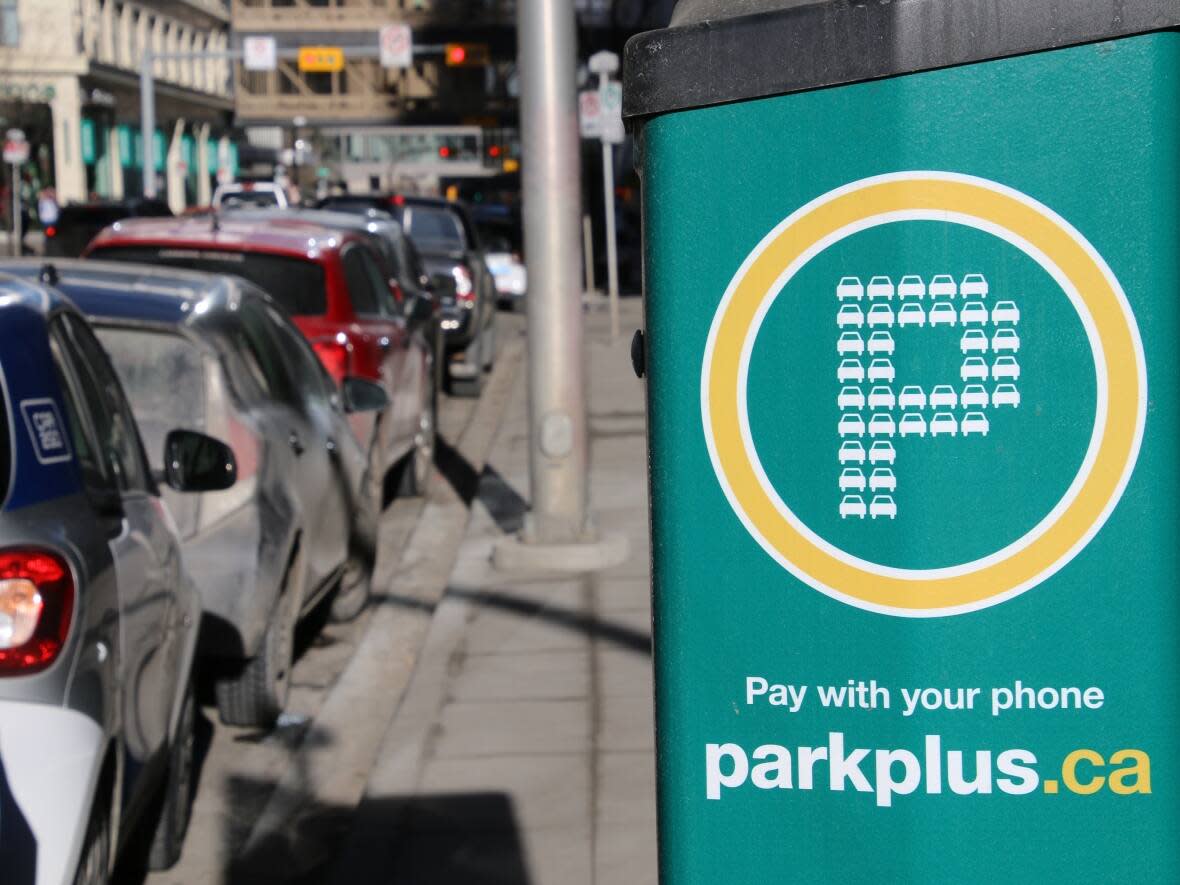Calgarians charged most in the country for monthly parking, report says

Calgary ranks number one in the country for most expensive monthly parking rates, according to a new report from commercial real estate company JLL.
At an average of $366 (or $275 US) for an unreserved spot in a third-party lot, the city ranks third for highest monthly parking in all of North America after only New York ($570 US) and San Francisco ($340 US), the report said.
The average reserved third-party parking stall in Calgary in January 2023 was $398.71. The average reserved parking stall for tenants of a building as of January 2023 was $525 and the average unreserved tenant stall was $445.
After Calgary, Toronto comes in second in the country with an average monthly parking rate of $347 for an unreserved spot in a third-party lot, while Vancouver sits at $300. In Montreal the average rate is $124.
"Calgary's premium cost of parking compared to other major markets is due to the lack of supply available
for Calgarians, especially in underground parkades," the report said.
It notes that there are 31,592 third-party parking stalls north of 11th Avenue — operated by the three biggest providers, Calgary Parking Authority, Impark, and Indigo. However, last year an average of 143,204 vehicles entered downtown daily. That's only about 18,000 fewer than pre-pandemic figures.
One of the authors of the report, Mason Lam, vice president and office practice lead at JLL, said the continuing return of office workers to the core compared earlier in the pandemic is helping to boost monthly parking rates.
He said that's particularly the case for Calgary in comparison to cities like Toronto and Vancouver, where commutes are longer, and therefore there has been less of a desire to return to in-person work.
"Calgary, you know, with accessibility of the downtown core and not being too far away, it seems to be more encouraging and easier for employees to get back in the office," Lam said.
"Coupled with the fact that oil and gas companies frankly just want you there now … It's a productivity thing from their perspective."

Because of Calgary's large geography and low population density, Lam said the city simply has more of a car culture than some other places.
"It's a cultural thing. Calgarians, they like their cars," Lam said. "Until we get better access from a public transit point of view, these costs will remain inflated indefinitely because you're going to get the demand for it."
According to a report from commercial real estate broker Avison Young, Calgary's downtown vacancy rate was at 27.2 per cent in the last quarter of 2022.
While that number may seem high, Lam said the situation is nuanced.
"When you look at the vacancy in Calgary, especially in the downtown core, there's really a tale of two cities here."
Lam buildings may be emptying out in the west end, demand remains high in the downtown core.
The vacancy rate for class AA real estate — considered the highest quality, which are largely in downtown core — was at 14.8 per cent, according Avison Young report.
"So the downtown area around Bankers Hall ... they actually didn't suffer the type of vacancy that the west end of Calgary suffered," Lam said.
The JLL report notes that parking rates are in rates are correlated with access to amenities, with lots close to The CORE Shopping Centre, near hotels and retailers posting the highest daily maximums and hourly rates.
The Calgary Parking Authority says it sets its off-street parking rates based on a combination of on-site occupancy and market rate analysis, which includes assessing other parking providers in the same area.
"We continually review parking occupancy to determine if rate adjustments or operational changes are required," it said in a statement.
"As we saw monthly parking demand decrease during the pandemic, we introduced new affordable parking products such as our Flex Pass to support hybrid work environments."
Indigo also started offering monthly flex parking for two to three days a week at a discount.


